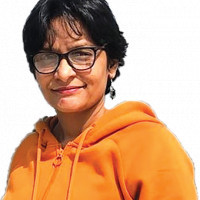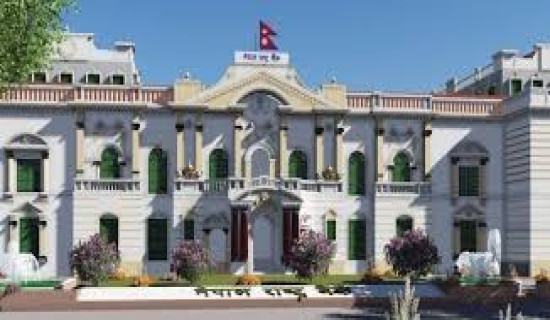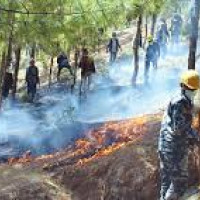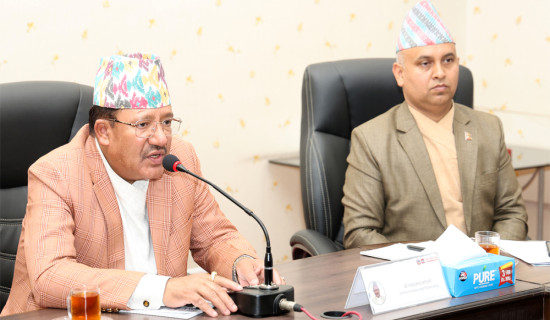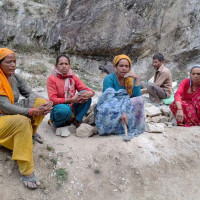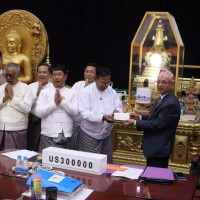- Tuesday, 17 February 2026
Small Nepali delegation heading to COP30
Kathmandu, Nov. 5: This year, the 30th session of the Conference of the Parties (COP30) will be held in the city of Belém, in the Brazilian state of Pará, from November 10 to 21.
As in previous years, many delegates from around the world are heading to the venue with their agendas, while mountainous and climate-vulnerable countries are looking forward to the conference being held in the Amazon region, a setting that may help highlight shared climate challenges and the need for fair compensation for loss and damage.
Unlike in previous years, Nepal, which used to organise various discussions, press meets, and training sessions in major hotels months ahead of the COP, has remained largely silent this time.
Dr. Buddi Sagar Poudel, Joint Secretary and Chief of the REDD Implementation Centre under the Ministry of Forests and Environment, said that there is not as much enthusiasm for the COP this year as in previous years because the venue itself is not easily accessible. He added that travel and logistics are highly expensive, making it difficult for both the government and the private sector to afford the high costs.
This year, only a small government delegation of about 10 members -- including Minister for Agriculture and Livestock Development Dr. Madan Prasad Pariyar, secretaries from the concerned ministries, Minister for Forests and Environment, and Chief of the Climate Change Management Division Dr. Maheshwar Dhakal -- will take part in the conference.
Nepal is planning to present a national document at the conference, which will include key issues such as climate finance and loss and damage, calling for fair and easy access to global funds for climate adaptation, especially for mountainous and least developed countries (LDCs).
The paper will also highlight adaptation in the Himalayas, urging global attention to the melting of glaciers, glacial lake outburst floods (GLOFs), and changing mountain ecosystems. In addition, it will stress just transition and local resilience by linking climate adaptation with livelihoods, agriculture and green growth.
Similarly, nature-based solutions will be featured, showcasing Nepal’s achievements in forest conservation, REDD+, and community forestry as successful local models for global climate action, said Dr. Poudel.
Last year, the government faced criticism for sending a “jumbo” team to the conference, with many questioning the inclusion of unnecessary participants.
Raju Pandit Chhetri, Executive Director of Prakriti Resources Centre (PRC), who is going to participate in the COP as a government delegate said that this year there is no concrete agenda to discuss like in previous years as we called the COP 29 as finance COP and it took momentum for the whole year but this year there is no such agenda to take momentum like in previous year.
There will be discussions on the regular issues, with decisions expected mainly on the adaptation indicators, which are unlikely to attract global attention. One key topic, the just transition agenda, will continue to be linked with forest issues, as noted by the Brazilian president. Given that the conference is being held in the Amazon, forest-related agendas and their potential benefits will also be highlighted.
According to an analysis by the UN Secretariat of the Nationally Determined Contributions submitted by countries, only 10 per cent of greenhouse gas emissions are projected to be reduced by 2030, even though the target was a 35 per cent reduction. Moreover, many countries have not yet submitted their NDCs; so far, only around 60 countries, including Nepal, have done so, he added.
Unlike previous COPs, there is no concrete agenda this year. Access is also a challenge, as the conference site is difficult to reach due to logistical issues. The Brazilian government is arranging two large ships for delegates, which is expected to be one of the most challenging aspects of this year’s event.
Dr. Bimal Regmi, a climate expert, who is participating in the COP this year too, said that the absence of a line minister has contributed to the lack of a concrete agenda for the upcoming COP. He added that many cases were filed with the CIAA because of the large number of delegates who attended the last COP, which has also influenced the government’s approach this year.
Also, the government has implemented stricter measures for official delegations, which, along with logistical challenges, has led to a decrease in the number of participants.
Geeta Pandey, Policy Advocacy and Research Director at the Karnali Integrated Rural Development and Research Centre (KIRDARC), who has been participating in the COP for the past six years, said that she will not be attending this year. “I heard there are logistical and travel difficulties for developing countries like ours, which might be the reason many people are not participating in the conference this year,” Pandey said.
“The reduced participation this year might also be influenced by the Gen Z protests, as the government seems cautious about taking a large delegation. Moreover, the Minister for Forests and Environment has not yet been appointed,” Pandey said.


